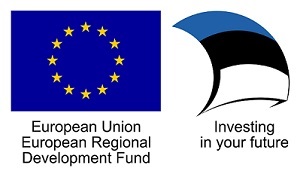Research
The Institute of the Estonian Language (Research and Development institution, R&D) is partly project-based (research projects and national programmes), and partly based on direct funding (i.e. an allowance for the implementation of the “Development Strategy of the Estonian Language 2011–2017”, whose action plan is annually confirmed by a decree of the Minister of Education and Research).
The research staff of the Institute falls into two groups: researchers and R&D specialists (lexicographers, language planners, terminologists, software developers). The researchers mainly produce scientific articles, and the R&D specialists mainly produce dictionary entries or database records: an ordinary dictionary entry may require as much effort as an average scientific article.
Research topics
1. Genesis of the Estonian language: lexis and grammar of historical sub-languages
This field carries on long traditions of studies in the Estonian lexis, grammatical system and onomastics. It is related to the projects “Word and concept in the development of Estonian vocabulary and place names (2010–2014)” and “The Cultural Shift in Estonian in the 17th and 18th centuries (2014–2017)”.
2. Speech research and technology
Speech studies at the Institute have a history of 50 years. The institutional project “Speech styles, sentence prosody, phonological variation: description, theory and modelling (2015−2020)” is a follow-up to the target-funded research project “Modelling intermodular phenomena in Estonian (2009–2014)”. The results are applied in Estonian speech synthesis: newsreader, spoken subtitles, audiobook generator.
3. Lexicography and lexicology
Dictionary-making is based on lexicological research, corpus linguistics and lexical semantics, and is closely connected with European e-lexicography. Since 2015 the Institute is the only compiling, collecting and storing facility for big academic dictionaries in Estonia, as well as the creator and developer of necessary dictionary writing systems. Gradually, all lexical collections important for the national culture have accumulated in the Institute.
4. Language planning and maintenance
The Institute is the national centre of corpus planning. The literary standard is maintained by the Dictionary of Standard Estonian (2018) and the Handbook on Standard Estonian (2019) and recommendations given to language users, incl. free linguistic advice (6000 phone queries and over 3000 emails per year; over 7600 pieces of advice on the website). Advice is also given on names, special terms. Plain language and EU language planning are fostered.
5. Terminology work
The Institute manages the termbases Esterm and Militerm and the Dictionary of Education, which contain over 60,000 entries from more than 50 domains. Esterm receives nearly 100,000 queries on average per month and Militerm 5000. Terminologists participate in terminological committees; they guide and train work groups in terminology work.
6. Cognate languages and dialects
Dialectology has been on the agenda since the Institute was founded in 1947; cognate language studies were added in 1957. Work is going on in both fields, resulting in important publications (etymological dictionaries, dialect dictionaries, dictionaries of cognate languages, dialect grammars), the necessary base material coming from the Archive of Estonian Dialects and Finno-Ugric Languages at the Institute.
7. Language technology
The Institute is the main collector, standardizer and availability guarantor of dictionaries, termbases and other lexical resources. It offers software for Estonian lexicographers and terminologists (Dictionary Writing System EELex, Terminology Management Systems Termeki and Multiterm, morphology software).
Research projects
In 2015–2023 the Institute is a partner of the Centre of Excellence in Estonian Studies (CEES), participating with two research themes:
- Institutional Research Funding IUT35-1 Speech styles, sentence prosody, phonological variation: description, theory and modelling (2015−2020)
- Personal Research Funding PRG34 Identity and power relations as reflected in the literary Estonian of the 16th–18th centuries
- Personal Research Funding PUTJD842 "Proto-European substrate in the vocabulary of Southern Finnic languages
- Personal Research Funding PSG227 Redefining Estonian parts of speech: a corpus-driven approach
Both have grown out of research areas with long traditions in the Institute.
Europrojects
- European Lexicographic Infrastructure (2018-2022), programm Horizon 2020
- eTranslation TermBank, programm Connecting Europe Facility, CEF Telecom
- Federated eTranslation Termbank Network (01.06.2020 - 01.06.2022)
Graduate School of Linguistics, Philosophy and Semiotics (2016–2022)
The Institute acts as a partner in university graduate school programmes. From 2009–2014 we participated in the Graduate School of Linguistics, Philosophy and Semiotics, which was a joint operation of the University of Tartu, Tallinn University, the Institute of the Estonian Language and the University of Göttingen. Within the graduate school, we organised five international doctoral seminars in the key areas of the Institute, such as Estonian language history, terminology, lexicography, speech technology, word grammar in dialects vs standard language, and oral speech.
In 2016–2022 the Institute participates in the Graduate School of Linguistics, Philosophy and Semiotics (2016–2022), which is a successor of the previous graduate school, but now as a joint effort of the University of Tartu, Tallinn University, the Estonian Literary Museum and the Institute of the Estonian Language. The coordinating partner is the University of Tartu.
Contact in the Institute
Roosikrantsi 6, 10119 Tallinn, Estonia
phone: +372 6177 500
e-mail: This email address is being protected from spambots. You need JavaScript enabled to view it.
contact person: Hille Pajupuu
Junior researchers (PhD students) and defended theses

